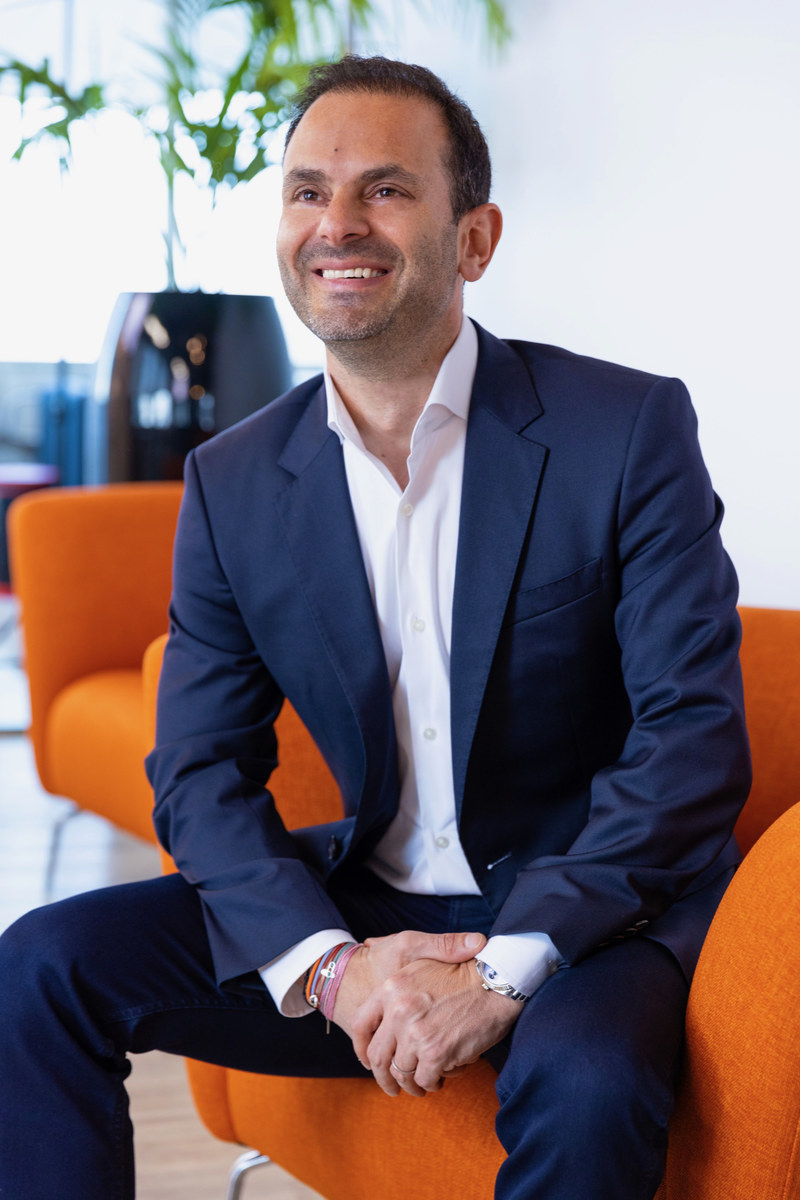DUBAI: Multinational advertising network WPP’s media-investment business, GroupM MENA, aspires to “shape the next era of media, where advertising works better for people,” said Amer El-Hajj, who became its CEO in September last year.
“This has been our ‘North Star’ focus,” he told Arab News. In support of this objective, the company has set new “benchmarks for client satisfaction, talent cultivation and industry influence” and is “actively shaping our proposition, best practices and strategies to stay ahead of industry trends,” he added.
 GroupM said it won 10 new clients in the first six months of this year, already marking 2024 as its most successful year yet in the region, with 40 percent growth in billings compared with 2022. The businesses it has added to its books include L’Oreal Middle East, Al-Fardan Jewelry, Americana Foods, Diriyah Gate Development Authority, telecoms company du, and snacks company Mondelez.
GroupM said it won 10 new clients in the first six months of this year, already marking 2024 as its most successful year yet in the region, with 40 percent growth in billings compared with 2022. The businesses it has added to its books include L’Oreal Middle East, Al-Fardan Jewelry, Americana Foods, Diriyah Gate Development Authority, telecoms company du, and snacks company Mondelez.
It attributed the successes to an organizational transformation, including a new business-development team, a restructured buying, finance and operations department, and a focus on the hiring of new talent while retaining and developing existing talent.
Many of the new hires are at the group level, the company said, including regional managing director of customer experience, data and technology; e-commerce director; head of buying; and head of marketing and communications.
In common with other industries, the media sector is becoming more reliant on the latest developments in technology. For example, the media-buying process is becoming increasingly automated thanks to improvements in artificial intelligence, which can use algorithms to buy advertising slots in real time, targeting different audiences on multiple platforms and even serving up differing advertising messages depending on factors such as the time of day or type of audience.
A 2023 PwC report found that 67 percent of leaders in the technology, media and telecoms sector believed new technologies such as generative AI threaten current business models. However, El-Hajj said GenAI facilitates real-time content creation that can be adapted and tailored to the individual preferences of target audiences, which in turn improves the automation and the effectiveness of advertising campaigns.
Within organizations, he added, it can serve as an important tool in efforts to streamline operational processes, including repetitive tasks, leading to greater efficiency and more cost-effective outcomes.
Still, he warned, businesses must not rely solely on AI without any human input and adequate quality controls.
“AI may lack the understanding of our culture and habits that is critical for nuanced advertising,” El-Hajj said. “Moreover, navigating regulatory complexities and addressing data-privacy issues are crucial considerations.”
The continuing evolution of technology means that businesses continually need to reskill their talent. A recent World Economic Forum report, titled “The Transformational Opportunity of AI on ICT Jobs,” found that 58 percent of employees believe their job skills will change significantly over the next five years as a result of AI and big data. Moreover, 92 percent of technology roles are expected to evolve in response to advancements in AI, it said.
GroupM defines its main objective as “creating value not only for our clients but also for the communities in which we operate.” To this end, it is committed to the development of local talent in Saudi Arabia, El-Hajj said, and more than 45 percent of its employees are Saudi.
It is also launching a university and academy initiative to help attract, recruit, train and educate the next generation of talent, to help fuel the company’s growth and increase its market share in the Kingdom, he added.
These initiatives come during a time of wider transformation and growth in Saudi society, which he said is creating promising opportunities for advertisers and agencies.
“With a youthful population, a large percentage (of which is) under 30 years old, there has been increased investment in digital advertising, social media marketing, and content creation tailored to local tastes,” El-Hajj said.
Driven by the goals of Saudi Vision 2030, the Kingdom is developing and diversifying its economy, leading to growth in the numbers of small and medium-sized businesses in the advertising and digital sectors, he added. Authorities in the country are also easing restrictions on cultural activities, which has “sparked a demand for innovative content and digital-media consumption.”
Thanks to these developments “Saudi Arabia’s creative and media industry is on a trajectory of continued expansion” with the aim of “positioning the Kingdom as a regional hub for media and entertainment” El-Hajj said.



























